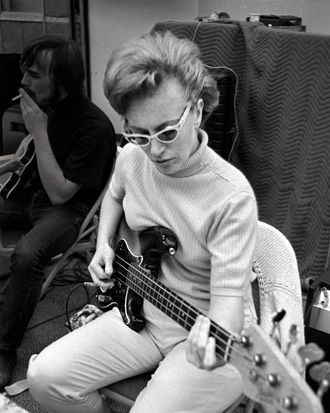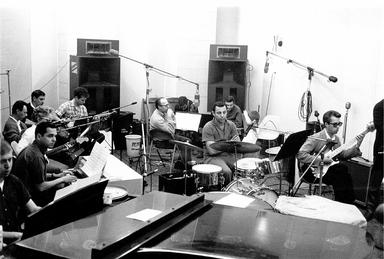Carol Kaye's Hall of Fame Rejection: A Quiet Revolution that Speaks Volumes
Carol Kaye's rejection of the Rock & Roll Hall of Fame induction critiques the industry's misrepresentation, standing as a protest for studio musicians.

In a music industry often louder than it is profound, Carol Kaye stands out not for the volume of her play, but the depth of her intentions. Recently, the legendary bassist made waves not for the sound she produced, but for what she refused to amplify—a Rock & Roll Hall of Fame induction she deemed unworthy of her legacy.
Kaye’s rejection was not a slight on the accolade itself, but a piercing critique of a system that she feels misrepresents the contributions of studio musicians. In her own words, her absence at this prestigious event is meant to shine a light on the unsung heroes of the golden age of music. "NO I won’t be there," she stated on Facebook, highlighting how the honor failed to reflect the truth of the work studio musicians contributed during the 1960s.

Her objection to being lumped under the "Wrecking Crew" label speaks volumes more than any overhyped award ceremony ever could. That term, she argues, was never a banner she or her colleagues flew, but rather a simplistic narrative imposed by others. Addressing this, Kaye remarked, "You are always part of a TEAM, not a solo artist at all...that’s a terrible insulting name."

With an estimated 10,000 recording credits, Kaye's fingerprints are on the very fabric of modern music. From The Beach Boys to Frank Sinatra, her bass lines have filled arenas and living rooms alike, not with the blaring insistence of notoriety, but with the subtle assurance of mastery.
While the Rock & Roll Hall of Fame intends to celebrate icons, Kaye’s declination brings us back to what truly matters. Her absence from the dais will be a deliberate rest in the composition of that night—an unplayed note that silently comments on what the industry honors.

As the Hall of Fame gears up to spotlight glammed-up narratives, Carol Kaye’s decision serves as an eloquent protest against an emphasis on spectacle over substance. Her stance whispers truths about authenticity that roar louder than any guitar riff or drum solo ever could.
The real rebellion, as Kaye shows us, doesn’t always cry out from center stage. It often stands quietly in the wings, challenging us to listen harder, to think deeper, and to honor the true architects of sound. In an industry caught up in its own echoes, Kaye's dignified defiance reminds us of the silent symphony where true art always resides.




